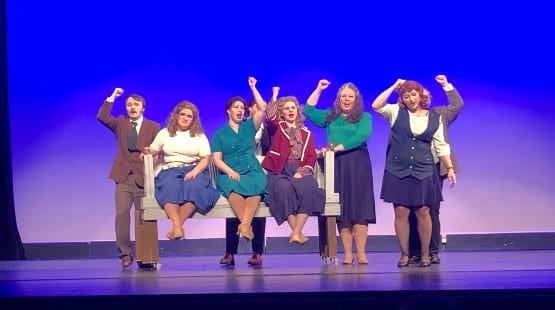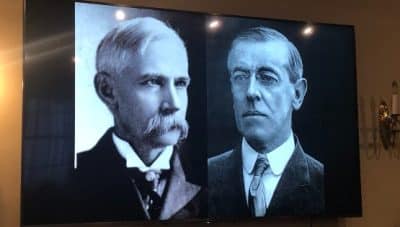By Tony Biasotti

Those three organizations and their missions overlap in a program called Bodies and Bites. Run by Extension’s Roanoke unit, Bodies and Bites brings medical students from the School of Medicine and health professions students from Radford University Carilion to the West End Center to teach the children there about how their bodies work and what kind of foods they should be putting into them.
The program is the brainchild of Kim Butterfield, an Extension family and consumer science agent and a former medical education coordinator at the School of Medicine. While at the medical school, one of her tasks was organizing community service projects for the doctors, nurses, and physician assistants in training, and that experience planted the seed for Bodies and Bites. In 2018, the program debuted at West End Center, and it is currently in its second year.
Three times per semester, a group of about 20 medical and allied health professions students visit the youth center to work with about 20 with children in second through fourth grade. Over the course of the academic year, approximately 120 health professions students spend time at the West End Center. During a two-hour lesson, the adult medical students teach the children about a particular topic — for example, the nervous system and why the brain needs the right kinds of fats to function properly, or the circulatory system and what foods are good for the heart. There are hands-on demonstrations and activities and then the kids and adults use the neighboring LEAP Community Kitchen and Freedom First education room to make a healthy snack that draws upon the day’s lesson.
“It’s always something that relates back to what they’ve been talking about, so for the heart lesson, they talk about how important it is to eat whole grains and they make a granola bar out of oats and peanut butter,” Butterfield said.
The medical students are learning, too, about their community, and about how to pass along their knowledge and experiences to children, perhaps sparking them to consider medical careers.
“We really focus on encouraging the adult students to talk to the kids about who they are and why they’re studying medicine, and to spend time getting to know the kids,” Butterfield said. “I thought it was really important for these kids, who may not have many health professionals in their family or their neighborhood, to meet those folks and see what they do.”
This year, Butterfield is working closely with Kris Rau, an assistant professor at the School of Medicine. A neuroscientist, Rau has brought an emphasis on brain science to the program.
“One of my main interests is STEM outreach and taking particularly neuroscience and teaching it to the general public,” Rau said. “The fact that they work with kids made me really interested.”
The kids at the West End Center are “super inquisitive,” he said. “It’s a great age. They want to learn about their bodies and how their bodies work and they ask great questions. I think it’s a really terrific program and it’s for an underserved population.”
The West End Center was established in 1979 to give children in the neighborhood a positive and nourishing after-school environment. The nonprofit serves about 150 children each year in kindergarten through eighth grade, and its programs include tutoring and literacy, fitness and nutrition, and leadership and social skills.
Extension has worked with the center for many years and helped to establish the center’s garden. Butterfield said she’s gotten positive feedback from the center’s children and staff about Bodies and Bites.
“The kids love it,” she said. “You’ll hear this ‘oooh’ when they understand something.”
Now that the program is up and running in Roanoke, Butterfield said she’d like to formalize the curriculum and use it in other parts of the state.
“So many communities could do this,” she said. “It wouldn’t have to be a medical school. If you have a community college with a nursing program, that would be a great fit for Extension to team up with.”










